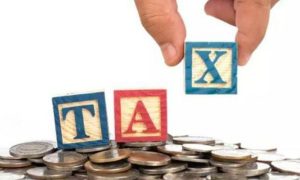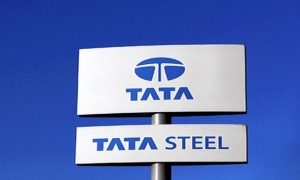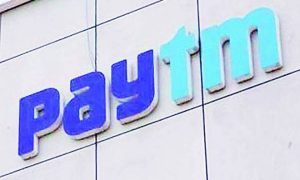Effective battery recycling is the only way EVs can have a positive impact on the environment.
The fact that the production of lithium-ion batteries and electric vehicles emits considerable amounts of CO2 is probably the EV industry’s worst kept secret. While it’s been proven that zero-emission vehicles like battery electrics do bring down pollution levels in urban areas, the question of battery waste management continues to be a prevalent one.
On one hand, several components of the lithium-ion battery, such as iron, copper, nickel and cobalt are inherently recyclable and considered safe for landfills. On the other, the process of mining lithium is considered to be very labour intensive and therefore it’s imperative that the battery, once used, is immediately sent for recycling.
It’s not entirely an altruistic, not-for-profit enterprise. Globally, the battery recycling market is projected to grow to $23.2 billion by 2025, currently experiencing an annual growth rate of 6%. Bottomline: for recycling to truly work in the long-term, it has to be profitable. While the Indian EV market is yet to reach a point where a large number of EV batteries collectively reach the end of their lifespan, lithium-ion batteries used in consumer electronics are already creating a sizable battery wasteland.
Then there are lead acid batteries which are far trickier to recycle without causing more pollution. Thankfully, several startups are gearing up to utilise the opportunity that lies ahead.
Ziptrax Cleantech
Ziptrax is not only a battery recycling company, it is also a repurposing one. The Delhi-based startup essentially takes discarded lithium-ion batteries, mostly from smartphones and other consumer electronics, and repurposes them to be used again, given that most of them still have 70-80% battery life left.
Having developed a methodology for separating usable li-ion cells from damaged ones, Ziptrax then uses the hydrometallurgical reclamation process of recycling (one of the three most used methods of battery recycling) and extracts essential chemicals from the batteries.
ACE Green Recycling Inc.
ACE Green Recycling Inc is one of the first brands to bring novel and emission-free forms of recycling to the market, particularly when it comes to recycling lead-acid batteries, which continue to be heavily used in India, given that they cost a lot less than li-ion batteries. According to Reuters, ACE has a recycling plant in Ghaziabad where it uses machines that run on electricity to refine lead components from scrap batteries. This is in direct contrast to the commonly deployed high-heat smelting process of lead production that’s one of the most polluting industries in the world.
MG Motor and Attero
It’s not just start-ups that are keen on battery recycling. Certain car brands are also entering the space. Recently, MG Motor India announced that it will work with Noida-based company Attero for the recycling of EV batteries in the country. One of the country’s leading electronic asset management companies, Attero holds more than 30 global patents for their recycling technologies.
MG Motors currently sells the MG ZS EV in India, with prices starting from Rs 20.99 lakh (ex-showroom). MG has also partnered with Umicore, a battery recycling solutions provider specialising in lithium battery management, for battery cycle management in the ZS EV.
Tata Chemicals
On the manufacturer front, it’s not just MG but also Tata Chemicals that has launched a lithium-ion battery recycling initiative, with an aim to recycle 500 tonnes of spent li-ion batteries. According to the brand’s press statement, “li-ion battery recycling recovers valuable metals like lithium, cobalt, nickel and manganese at 99 percent plus purity with-in industry leading levels of yield”.
Mahindra Electric has also announced plans to partner-up with a supplier and recycle EV batteries, although further details are awaited.
eBikeGo
Another EV manufacturer to look into battery recycling is eBikeGo, which recently started a drive to recycle the lithium batteries from their products. The brand isn’t restricting itself to lithium-ion batteries only, as several makers of low-speed (under 25kph) two-wheelers use lead acid batteries. One of the many benefits of in-house recycling of batteries is the fact that the brands can recycle almost the entire amount of lithium extracted from the battery and then recycle it, thus helping bring down the cost of EVs, which, in turn, will promote widespread adoption.
Lohum Cleantech
Delhi-based Lohum Cleantech is one of the most thorough end-to-end battery solutions providers in the country. It’s involved in mineral extraction which can be used to indigenously produce li-ion cells, while also manufacturing lithium-ion battery packs for electric scooters and 3Ws and repurposing existing battery packs by testing used lithium batteries (most of which usually still have 70-80% of their lifespan ahead of them) and redeploying them for their second life.
On the global front, the battery recycling business is based primarily out of Europe and China, with brands like Dusenfeld in Germany, Anhua-Taisen Recycling in China and Nippon and Sony in Japan being some of the most prominent players.The end goal, of course, is to not only reduce excessive battery wastage but also lower the overall cost of li-ion batteries and extend their use ability and lifespan – two areas which continue to cause skepticism in the minds of customers. If lithium extraction is such an energy and labour-intensive process, it stands to reason that it has to be done in the most sustainable way possible. And for the lithium-ion economy to be sustainable in the long term it has to abide by the three sacred “R’s”: reduce, reuse, recycle.



































